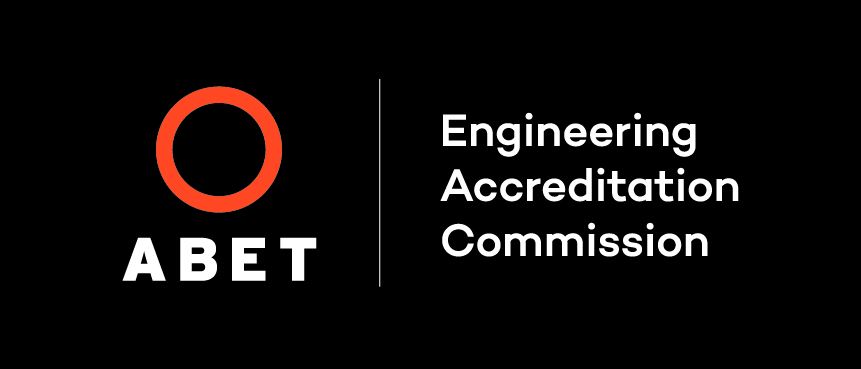Civil Engineering
ACCREDITATION
The Bachelor of Science in Civil Engineering program is accredited by the Engineering Accreditation Commission of ABET, https://www.abet.org, under the commission’s General Criteria and Program Criteria for Civil Engineering.

PROGRAM EDUCATIONAL OBJECTIVES
The Program Educations Objectives (PEOs) are broad statements that describe the career and professional accomplishments that the Program is preparing graduates to achieve, 3 to 5 years of graduation, and they are
- Technical Aptitude: Be employed as engineers with the ability to use their technical knowledge, design, and problem solving skills for effective professional practice throughout their careers;
- Life-Long Development: Exercise capabilities for life-long learning as a mean to enhance their technical and professional skills, to continuously enrich themselves and benefit the communities they are serving and beyond;
- Collaborative Spirit: Develop interpersonal and collaborative skills that function well amongst a diverse group of professionals for a productive career; and
- Professional Advancement: Advance and support the engineering profession through participation of professional societies, civic groups, and educational institutions; and/or establish a distinctive record of professional achievements.
STUDENT OUTCOMES
The Program requires that students completing a Bachelor of Science in Civil Engineering (BSCE) degree to acquire the skills necessary to succeed in the engineering profession. The Student Outcomes (SOs), which are the skill sets describing what students are expected to know and are capable of doing by the time of graduation, as identified by the Program are
(1) An ability to identify, formulate, and solve complex engineering problems by applying principles of engineering, science, and mathematics.
(2) An ability to apply engineering design to produce solutions that meet specified needs with consideration of public health, safety, and welfare, as well as global, cultural, social, environmental, and economic factors.
(3) An ability to communicate effectively with a range of audiences.
(4) An ability to recognize ethical and professional responsibilities in engineering situations and make informed judgments, which must consider the impact of engineering solutions in global, economic, environmental, and societal contexts.
(5) An ability to function effectively on a team whose members together provide leadership, create a collaborative and inclusive environment, establish goals, plan tasks, and meet objectives.
(6) An ability to develop and conduct appropriate experimentation, analyze and interpret data, and use engineering judgment to draw conclusions.
(7) An ability to acquire and apply new knowledge as needed, using appropriate learning strategies.
ENROLLMENT AND GRADUATION DATA
Table 1 – BSCE Degree Awarded (10 years: 2014 – 2023)
| Degree Awarded | 2014 | 2015 | 2016 | 2017 | 2018 | 2019 | 2020 | 2021 | 2022 | 2023 |
|---|---|---|---|---|---|---|---|---|---|---|
| BSCE | 60 | 65 | 68 | 65 | 62 | 68 | 81 | 83 | 70 | 70 |
Table 2 – Student (Fall Semester) Enrollment (10 years: 2014 – 2023)
| Student Enrollment | 2014 | 2015 | 2016 | 2017 | 2018 | 2019 | 2020 | 2021 | 2022 | 2023 |
|---|---|---|---|---|---|---|---|---|---|---|
| CE UG | 444 | 449 | 445 | 449 | 443 | 428 | 440 | 389 | 383 | 343 |